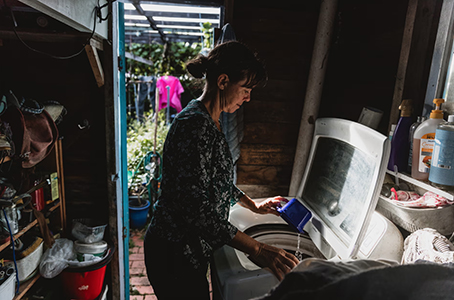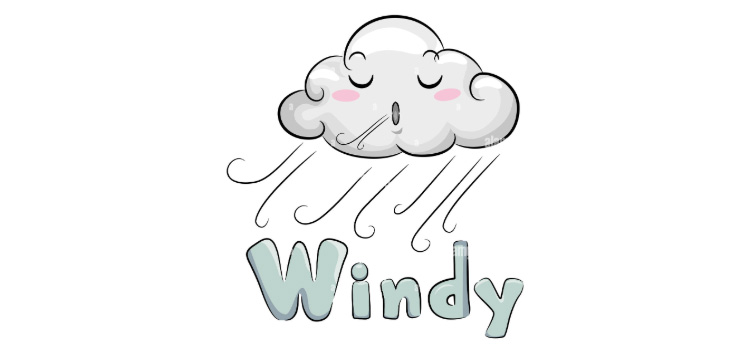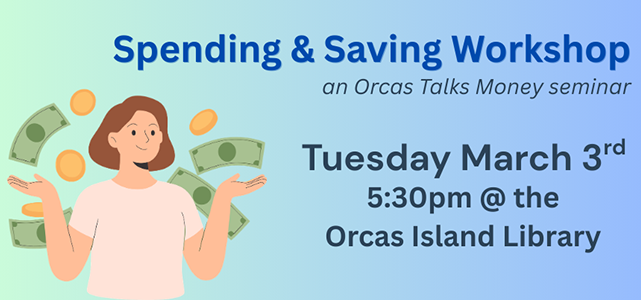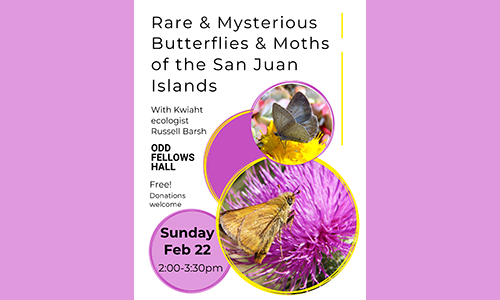Ten years ago, Jo Nemeth quit her job and closed her bank account. Today, she’s more committed than ever to her moneyless life
||| FROM THE GUARDIAN |||
Sharon Brodie clearly remembers her first Christmas with her good friend Jo Nemeth. It was 2016 and also her first Christmas without her husband, Monty, who had died suddenly a month earlier.
“I didn’t even want to be alive,” says Brodie from her home in Lismore, northern New South Wales. “I definitely didn’t want to go to the shops or buy presents or do anything. But Jo had come to stay with us [Brodie and her two teenage boys] to help out, and on Christmas Eve I told her my gift to her was that we could go dumpster diving, which I’d never done before – and we did, that night.
“It was a revelation. The things we found, just thrown out by local businesses. We brought home perfectly good food for a Christmas feast and all these beautiful flowers we put around the house and they felt like a gift from Monty, a gift I would never have received if not for Jo. That was my introduction to Jo’s moneyless life.”
A year earlier, in 2015, Nemeth had quit her community development job, given the last of her money to her 18-year-old daughter Amy and closed her bank account.
“I was 46, I had a good job and a partner I loved, but I was deeply unhappy,” Nemeth says.
“I’d been feeling this growing despair about the economic system we live in and the harm I was doing to other people and to the planet, even when I tried to buy ethically, while I lived in this world of privilege.”
Her “lightbulb moment” came when her parents, retired farmers used to frugal living, gave her a book about people with alternative lifestyles. “When I read about this guy choosing to live without money, I thought, ‘Oh my God, I have to do that!’”
Soon after, Nemeth came across The Moneyless Man: A Year of Freeconomic Living by Mark Boyle, who lived without money for three years in Ireland. Following his example, the first thing Nemeth did was write a list of her needs.
“It turned out to be a short list because I already had things like pots and pans and a toothbrush, and I discovered I really didn’t need much to be comfortable. Then I just started ticking things off, figuring out how I could meet my needs without having any negative impacts.”
Nemeth, now 56 and single, doesn’t own her own home or any property. Nor does she receive welfare payments or have any savings, a generous benefactor or a secret stash of emergency cash.
At first, food was her biggest concern and the easiest need to satisfy. “I didn’t actually do much dumpster diving, I didn’t need to,” she says, because she was growing food herself and friends would give her waste food. “People often have things they’re never going to use in the back of their cupboards.”
And whenever her birthday or Christmas rolled around, she would ask her parents for, say, a 5kg bag of rice or a packet of powdered milk.
She soon started tapping into the “gift economy” more deeply, giving without expecting anything in return, receiving without any sense of obligation.
“That second part took a while to get used to,” she says. “It’s very different to bartering or trading, which involves thinking in a monetary, transactional way: I’ll give you this if you give me that. In the early days people would say, ‘Come and do this for me and I’ll give you such and such in return.’ And I’d say, ‘No, I’ll just come and do the work and you don’t have to give me anything’.”
It’s paid off in unexpected ways. Nemeth is acutely aware she is in the fastest-growing demographic at risk of homelessness in Australia. Yet, paradoxically, she has never worried about where she’s going to live.
“I actually feel more secure than I did when I was earning money,” she says, “because all through human history, true security has always come from living in community and I have time now to build that ‘social currency’. To help people out, care for sick friends or their children, help in their gardens. That’s one of the big benefits of living without money.”

Nemeth makes items such as washing powder to save the household money and reduce its environmental footprint. Photograph: Natalie Grono/The Guardian
For the first three years, Nemeth lived on a friend’s farm, where she built a small shack from discarded building materials before doing some housesitting and living off-grid for a year in a “little blue wagon” in another friend’s back yard. Then, in 2018, she moved into Brodie’s house full-time; it’s now a multigenerational home that includes Brodie’s new partner and one of her sons, Nemeth’s daughter Amy, Amy’s husband and their three small children.
Instead of paying rent, Nemeth cooks, cleans, manages the veggie garden and makes items such as soap, washing powder and fermented foods to save the household money and reduce its environmental footprint. And she couldn’t be happier.
**If you are reading theOrcasonian for free, thank your fellow islanders. If you would like to support theOrcasonian CLICK HERE to set your modestly-priced, voluntary subscription. Otherwise, no worries; we’re happy to share with you.**









So how does she get shoes and clothes, they eventually wear out. Even if you get second hand in the Op Shop, they still want a few dollars for it. So you are not living without money, you are really living on other peoples and businesses money, even, if you are doing work for them. Then there are council charges for water, waste water, waste and other sevices like libraries and swimming pools. if you don’t pay them, they send you the debth collectores and if you don’t pay them, they take your possessions and liquidate/sell them and kick you out of where you are living. What do you eat? Collecting weeds along the roads and dishing in the rivers, hunting wildlife, who is payng for your hunting gear ??? If you want to live under the bridge or a rock, the police will ask you to move on, or put you into custody/prison. I guess, that’s the only place, where you can live without money, though your freedom, quality of life and choices will be severely curtailed.